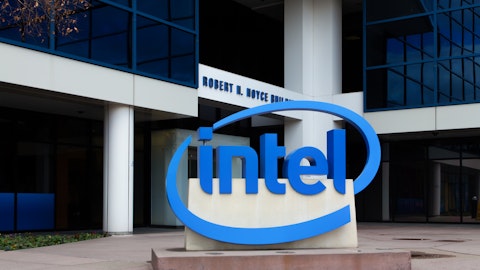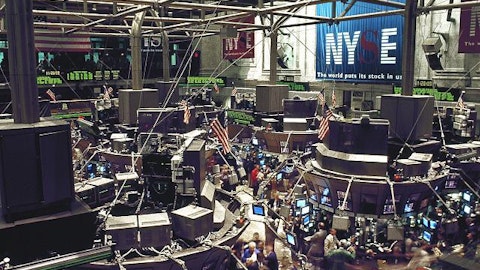Although no one knows how many investors pay close attention to insider trading behavior when making investment decisions, there is good reason to believe that a high number of retail investors examine this activity as part of their stock analysis process. It is generally believed that executives and Board members usually sell shares of their companies when they see signs of trouble ahead, but this line of thought seems to be quite outdated. Insider trading watchers should keep in mind that most corporate insiders receive stock-based compensation as part of their compensation packages, which is why insiders sometimes sell shares for personal needs, without taking into account how undervalued or overvalued their companies’ shares are. As most insider sales related to freshly-exercised stock options or incumbent personal needs are conducted under pre-arranged trading plans, investors should mostly look for spur-of-the-moment insider transactions, which are solely the types of trades we report on when covering insider trading activity. With that in mind, Insider Monkey processed numerous Form 4 filings submitted with the SEC on Friday and identified three companies with noteworthy insider sales.
Academic research has shown that certain insider purchases historically outperformed the market by an average of seven percentage points per year. This effect is more pronounced in small-cap stocks. Another exception is the small-cap stock picks of hedge funds. Our research has shown that imitating the 15 most popular small-cap stocks among hedge funds outperformed the market by nearly a percentage point per month between 1999 and 2012 (read more details here).
Intel Corporation Chairman Sells Massive Block of Shares
Intel Corporation (NASDAQ:INTC) had one of its most influential insiders sell shares this past week. Chairman Andy D. Bryant sold 185,740 shares on Thursday at prices varying from $31.93 to $32.05 per share, cutting his direct ownership stake to 386,731 shares. Mr. Bryant also holds an indirect ownership stake of 24,383 shares, which is held by a family trust fund.
The chipmaker is the worst performing stock in the Dow Jones Industrial Index thus far in 2016, so the recent insider selling at the company is not promising at all. Intel’s shares are 8% in the red year-to-date and are down by 3% over the past 12 months. The company’s disappointing first quarter earnings report released at the beginning of last week was overshadowed by a restructuring initiative that involves the reduction of up to 12,000 positions by mid-2017, which represents roughly 11% of the company’s current workforce. The freshly-announced headcount reduction is part of Intel Corporation (NASDAQ:INTC)’s transition towards the cloud and Internet of Things from the fast-declining PC market. Intel dominates the PC market, but fresh statistics show that global PC shipments declined by 11.5% year-over-year in the first quarter of this year. The company anticipates the PC market to decline by a further high-single-digits in 2016, so Intel’s data center and Internet of Things businesses are seen as the primary growth pillars in the years ahead. The company anticipates revenue growth in the mid-single-digits in 2016, down from its previous outlook of mid-to-high-single-digit growth.
Shares of Intel are currently changing hands at around 12.1-times expected earnings, below the forward P/E multiple of 14.3 for the Semiconductors sector. The hedge fund sentiment towards the chipmaker increased in the December quarter, as the number of funds tracked by Insider Monkey with stakes in Intel increased to 56 from 45 quarter-over-quarter. Ken Fisher’s Fisher Asset Management owns 19.63 million shares of Intel Corporation (NASDAQ:INTC) as of March 31.
Follow Intel Corp (NASDAQ:INTC)
Follow Intel Corp (NASDAQ:INTC)
Receive real-time insider trading and news alerts
The concluding pages of this article discuss the insider selling registered at Tile Shop Hldgs Inc. (NASDAQ:TTS) and PepsiCo Inc. (NYSE:PEP).





